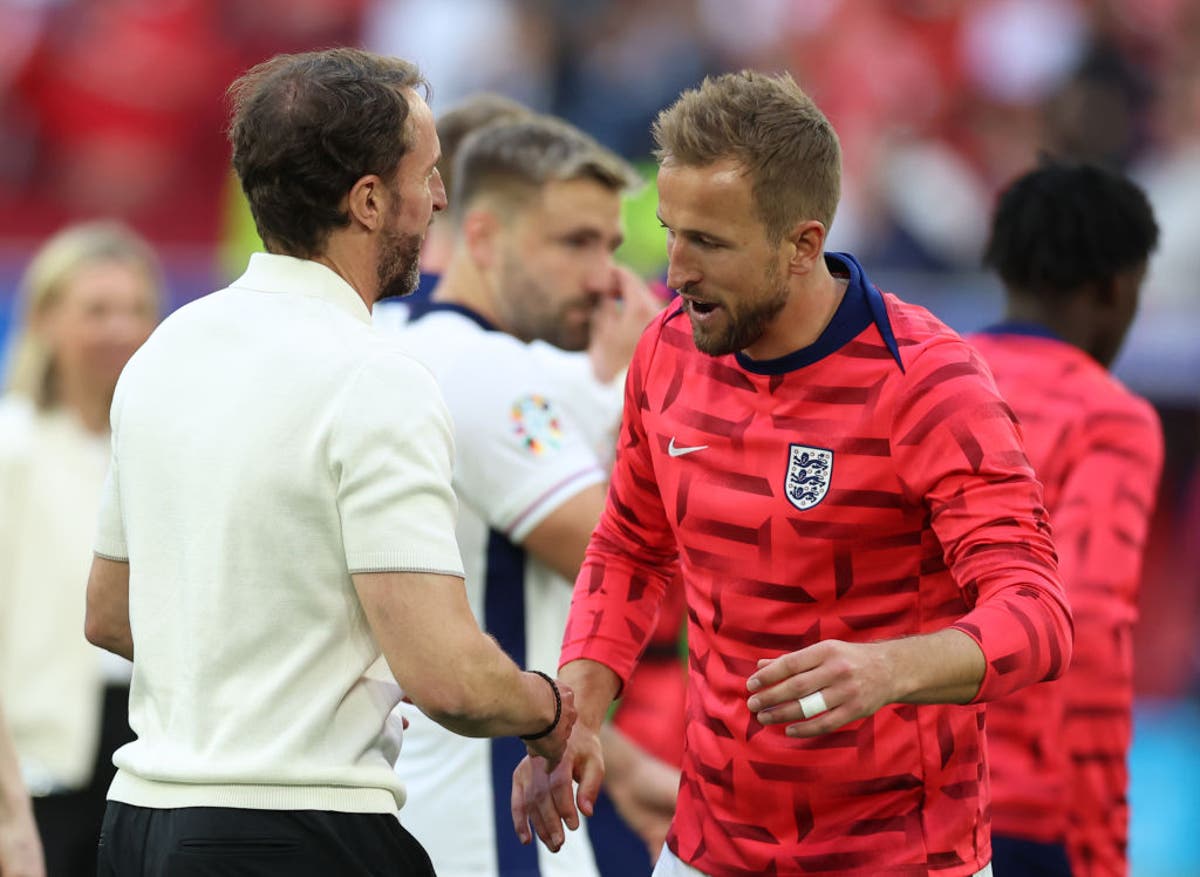As Berlin and the Henri Delauny trophy come into clearer view, it is almost as if Gareth Southgate’s vision of his side is even more clouded. England’s run to the Euro 2024 semi-final certainly hasn’t been one of those classic cases of a team finding itself as a tournament goes on. So much around Southgate’s side still doesn’t make sense, bar their own iron will, as was all illustrated so chaotically in that quarter-final victory over Switzerland.
What is maybe most significant is that this doesn’t feel as important as it did even a week ago, whatever about three weeks ago. England very much don’t start like they’ll finish, and this doesn’t seem to matter that much. By contrast, the eventual changes seem to result in the winning of ties.
That doesn’t actually mean Southgate has stumbled on what works, though, in another way that can happen in such games.
It’s more that England do what is required in the moment, only to revert to type and retreat. They were again hanging on against the Swiss, who wasted a series of openings. It isn’t really the same as the kind of dependable rigour England showed in previous Southgate campaigns.
A tournament team have become a moments team, that are characterised by a more ad hoc quality. It’s just as well Southgate has so many individual match-winners.
The manager, for his part, might say this was what he always meant by “finishers”. This was a concept that Southgate took from his ample research into other sports, particularly rugby. The idea was to encourage the squad to think more collectively, and that there shouldn’t be the same hang-up about starting games. Given the number of subs now possible, and the intensity of modern football, many players are going to get more opportunities.
Southgate made a point of stressing this in his very first comment to media after the game.
“So many bits of behind-the-scenes work that have played a part in tonight, like Luke [Shaw] getting back on the pitch, medical team, physical performance team, as well as Luke, penalties, so many people involved in that, different departments, preparation for the game, tactical plan.
“We’ve got such good staff, I’m so fortunate to have that support, the players are showing such amazing togetherness, camaraderie, their involvement from the bench when they’re coming into the game is huge, and it’s great so many of them are getting these little moments where they shine, because they are all playing a part, they don’t all get the headlines but, tonight, you could write a story about any number of them, really.”

Ivan Toney, previously a player at this tournament used almost exclusively to replicate opposition forwards at training, has become a fine example in how he’s been influential to two huge moments. He set up Harry Kane’s winner against Slovakia and then scored maybe the pick of the penalties against Switzerland.
The nonchalant manner with which he spoke about it was almost what it put above the rest. “I wouldn’t say pressure. I just do what I always do… step up and roll it into the net.
“I never look at the ball. People might think it’s strange but it’s my routine.”
It’s all so relaxed, which is perhaps why Southgate seems to take a similar attitude to bigger questions about his team. It is why there doesn’t need to be the same frenzy about the first XI for any given match.
It is why he evidently isn’t going to obsess about what has become the biggest question, that Toney’s contribution touches on. That is what to do with Kane.
It has got to the point where, rather than just not impacting games, the captain and star striker is actively slowing England down.

Southgate would never properly address such doubts about a player he considers one of his best lieutenants, mostly out of loyalty, but he was at least more expansive on Kane’s performance.
“All of the games have been slightly different, I thought he did a super job for the team in terms of defensively, his positioning, his understanding of where he needed to be, he’s perhaps not flowing as he’s arriving in those deeper areas as sometimes he looks with his passing and stuff, but he’s still playing an immense part for the group.”
This is the message now.
That still doesn’t mean it’s the optimum way to go about trying to win this tournament, or beating Netherlands. Southgate still has so much to solve, and the danger of trying to do so mid-match is that it leaves a team so much more hostage to fortune. There were only centimetres between Xherdan Shaqiri hitting the bar from a corner and hitting the net, and a similar moment could easily go the other way against the Dutch if England persist in being so chaotic.
The return of Shaw will help. Southgate might now be able to play the 4-2-3-1 he always planned. That is worth a chance.

It will likely mean the manager is more inclined to keep the same team – with Kane at the top. The striker’s low number of touches have already drawn comparisons with Cristiano Ronaldo, although it isn’t really the same thing. Southgate does want to use him in a different way. The question may be whether a faster striker is better suited to the latter stages, when a game is stretched. In other words, a finisher.
Toney may come in then. It would show how England’s campaign has come on. As with games, they may indeed finish the tournament in a very different manner to how they started.

